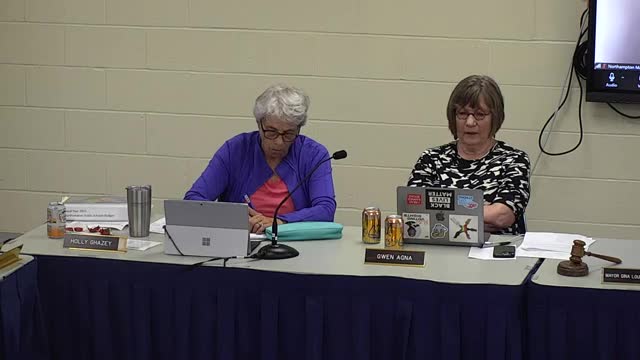School committee faces turmoil over superintendent evaluation process
August 09, 2024 | Northampton City, Hampshire County, Massachusetts
This article was created by AI summarizing key points discussed. AI makes mistakes, so for full details and context, please refer to the video of the full meeting. Please report any errors so we can fix them. Report an error »

During a recent school committee meeting, members expressed significant concerns regarding the evaluation process of the superintendent, Dr. Bonner. The discussions highlighted frustrations over the compressed timeline and perceived inadequacies in the evaluation framework, which some members felt did not align with the established standards.
Member Seraphi Cox voiced disappointment in the evaluation process, noting that the committee had previously discussed the need for a structured rubric but felt that little progress had been made. She emphasized the need for a thorough conversation about the evaluation criteria and the evidence presented, suggesting that the committee was underprepared to make informed decisions. Cox proposed breaking the evaluation into two parts: first discussing the subcommittee's recommendations and then allowing time for further review before any endorsement.
The committee also grappled with procedural questions, particularly whether a vote was necessary at this meeting. Member Agna clarified that while there was an expectation to present the evaluation, the timeline for a formal vote was unclear. Legal counsel was consulted to determine the implications of discussing individual evaluations and whether they could be shared among committee members without violating open meeting laws.
As the meeting progressed, members acknowledged the challenges of the evaluation process, including the lack of continuity among subcommittee members and the need for clearer guidelines moving forward. The committee agreed to revisit the evaluation at their next meeting, allowing for more time to review individual assessments and the overall evaluation framework.
The discussions underscored a collective desire for transparency and improved processes within the committee, with members advocating for better access to information to facilitate informed decision-making in future evaluations.
Member Seraphi Cox voiced disappointment in the evaluation process, noting that the committee had previously discussed the need for a structured rubric but felt that little progress had been made. She emphasized the need for a thorough conversation about the evaluation criteria and the evidence presented, suggesting that the committee was underprepared to make informed decisions. Cox proposed breaking the evaluation into two parts: first discussing the subcommittee's recommendations and then allowing time for further review before any endorsement.
The committee also grappled with procedural questions, particularly whether a vote was necessary at this meeting. Member Agna clarified that while there was an expectation to present the evaluation, the timeline for a formal vote was unclear. Legal counsel was consulted to determine the implications of discussing individual evaluations and whether they could be shared among committee members without violating open meeting laws.
As the meeting progressed, members acknowledged the challenges of the evaluation process, including the lack of continuity among subcommittee members and the need for clearer guidelines moving forward. The committee agreed to revisit the evaluation at their next meeting, allowing for more time to review individual assessments and the overall evaluation framework.
The discussions underscored a collective desire for transparency and improved processes within the committee, with members advocating for better access to information to facilitate informed decision-making in future evaluations.
View full meeting
This article is based on a recent meeting—watch the full video and explore the complete transcript for deeper insights into the discussion.
View full meeting
